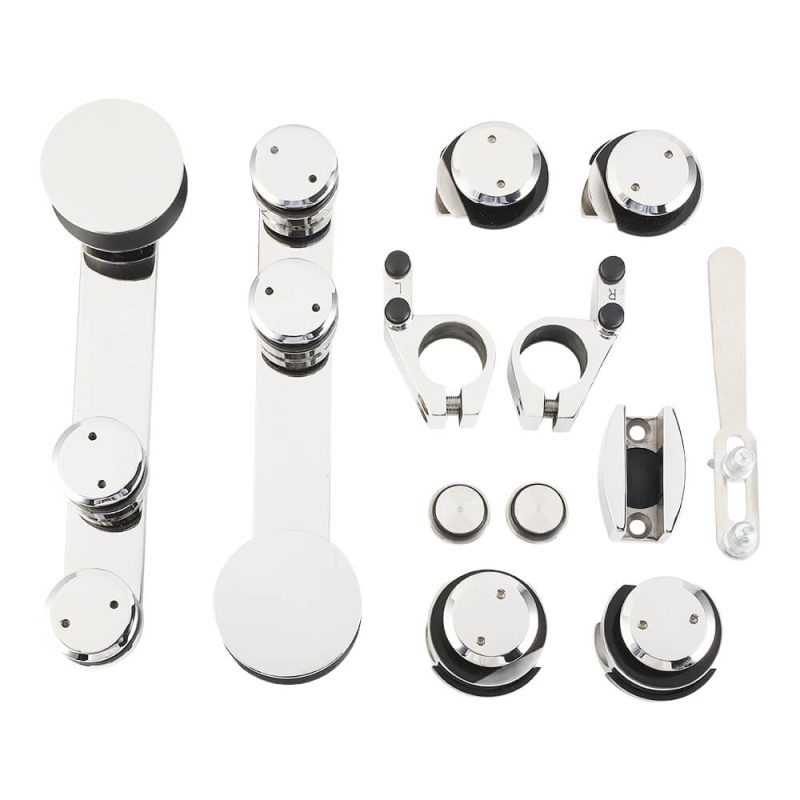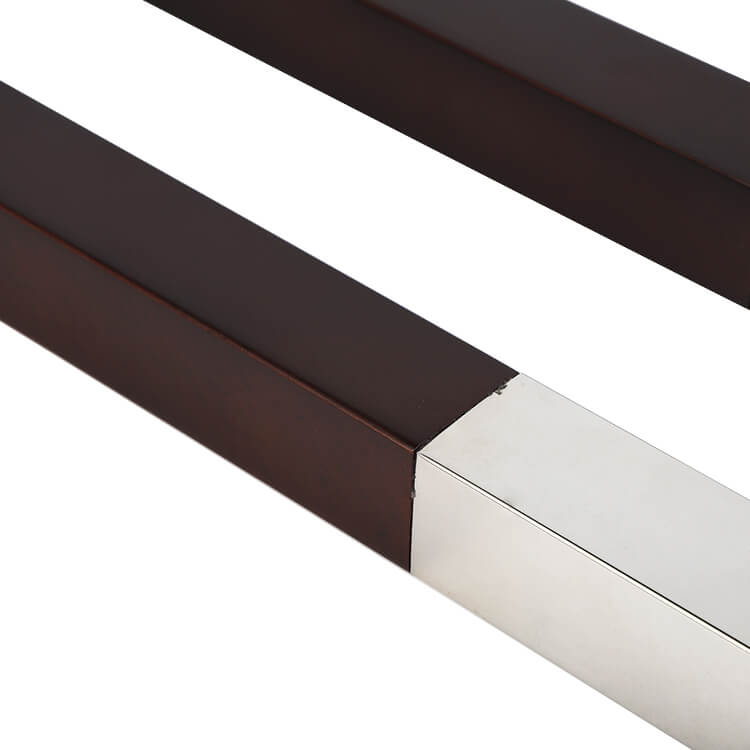The Environmental Impact of Your Frameless Shower Clip Choices
In the realm of bathroom design, frameless showers have gained immense popularity for their sleek aesthetic and spacious feel. While the choice of shower clips may seem like a minor detail, it significantly affects the environmental impact of your bathroom renovation. Here’s an exploration of how frameless shower clip materials and manufacturing processes impact the environment:
Materials
Plastic Clips:
Plastic is a non-biodegradable material that contributes to landfill waste and plastic pollution. The production of plastic shower clips involves the extraction of fossil fuels, which releases greenhouse gases into the atmosphere. Additionally, plastic clips can leach harmful chemicals into the water supply during their lifespan and disposal.
Metal Clips:
Metal clips are generally more durable and environmentally friendly than plastic clips. However, the type of metal used and its manufacturing process play a crucial role in its environmental impact. Stainless steel, for example, is highly corrosion-resistant and recyclable, making it a sustainable choice.
Manufacturing
Energy Consumption:
The manufacturing process of shower clips consumes energy, primarily from fossil fuel-powered sources. Energy-efficient manufacturing techniques, such as using renewable energy sources or optimizing production processes, reduce the carbon footprint of shower clip production.
Emissions:
The production of shower clips involves various processes that release emissions into the air and water. These emissions can include volatile organic compounds (VOCs), particulate matter, and toxic chemicals. Choosing manufacturers with environmentally responsible production practices and certifications minimizes these emissions.
Water Consumption
Product Durability:
Durable shower clips last longer, reducing the need for frequent replacements and the associated water usage during manufacturing and disposal.
Water-Saving Features:
Some shower clips incorporate features that reduce water consumption, such as flow restrictors or aerators. These features can help conserve water, minimizing your environmental footprint.
Disposal
Landfill Waste:
Shower clips that end up in landfills contribute to solid waste accumulation. Choosing biodegradable or recyclable clips reduces the long-term environmental impact of their disposal.
Recycling:
Metal clips are often recyclable, providing an opportunity to reduce waste and conserve resources. Proper recycling programs and efficient waste management systems ensure that these clips are responsibly recycled.
Sustainable Choices
To make environmentally conscious choices regarding frameless shower clips, consider the following factors:
Opt for shower clips made from durable and recyclable materials, such as stainless steel.
Choose manufacturers with eco-friendly production practices and certifications.
Select shower clips that incorporate water-saving features.
Ensure proper disposal and recycling of used shower clips.
By making informed decisions about your frameless shower clip choices, you can minimize your environmental impact and contribute to a more sustainable future.
-
What Are Shower Glass Hinges and Why Do Manufacturers Focus on Quality Standards?
11-02-2026 -
What Is the Best Material for Shower Door Hinges: Stainless Steel or Brass?
05-02-2026 -
What Types of Glass Office Door Locks Are Most Durable?
04-02-2026 -
The Advantages of Stainless Steel Glass Door Locks: Durability, Security, and Design
23-01-2026 -
Top Features of D Locks for Glass Doors: What to Look For
20-01-2026
-
Wall to Glass Hinge vs Glass to Glass Hinge: Which Is Better?
12-02-2026 -
Which Types of Shower Hinges Are Best for Modern Bathrooms?
10-02-2026 -
What Are the Different Types of Glass Shower Door Hinges?
06-02-2026 -
The Best Lock Options for Double Swing Glass Doors: Features and Benefits
31-01-2026 -
The Ultimate Guide to Glass Door Locks: Which One Is Right for You?
30-01-2026









